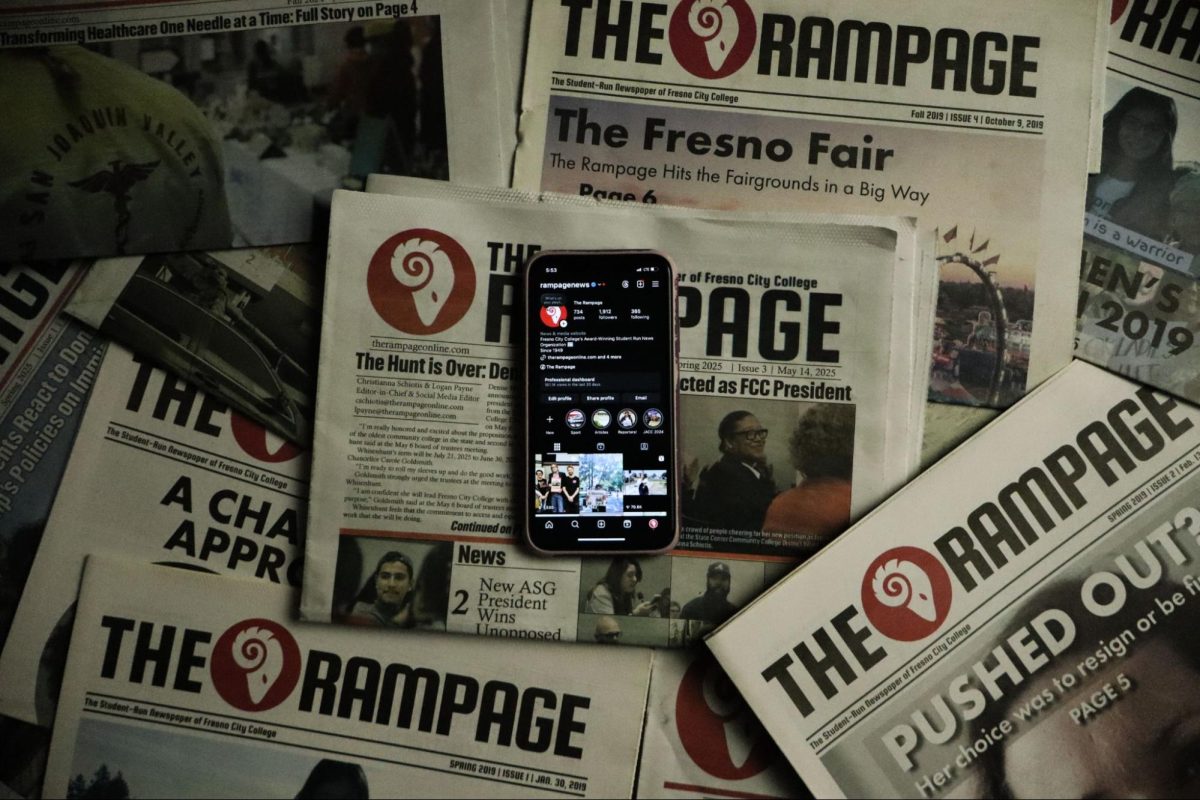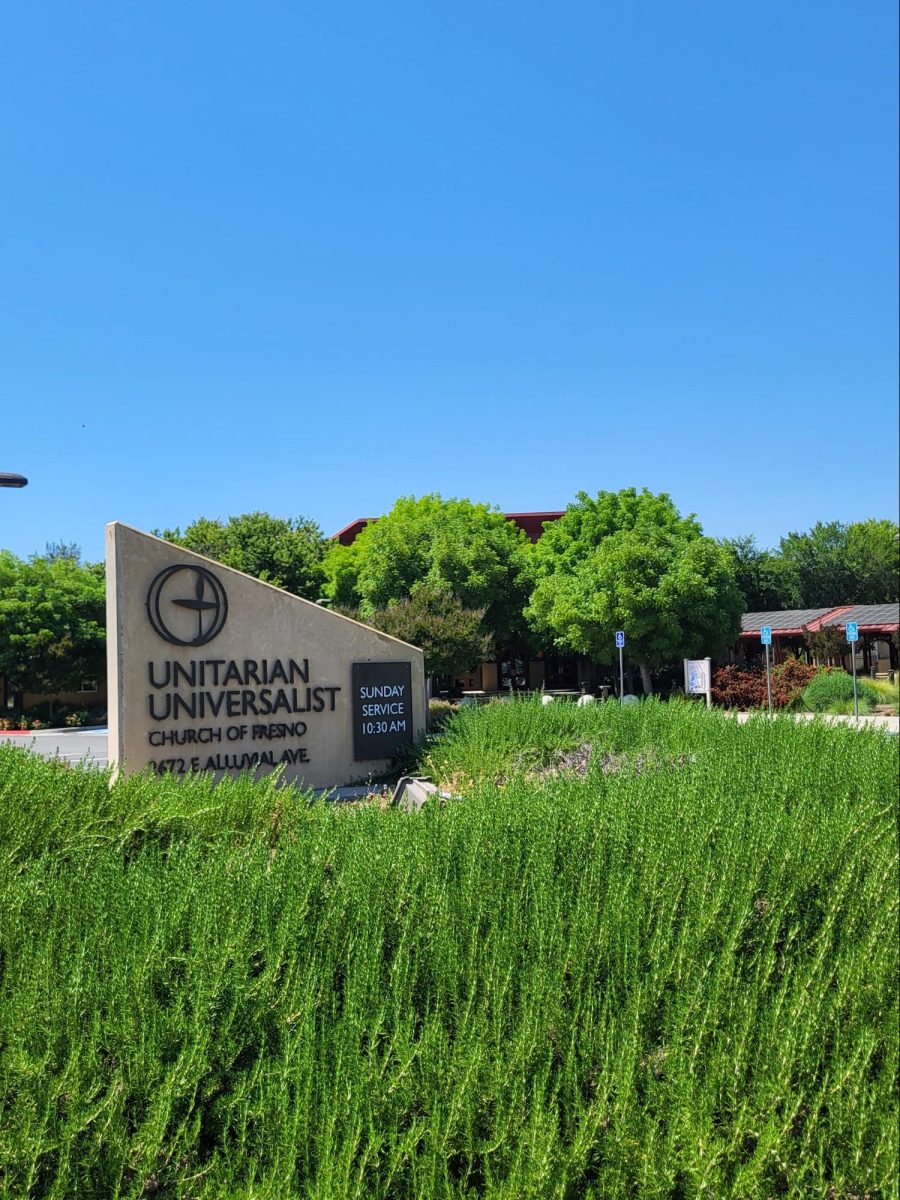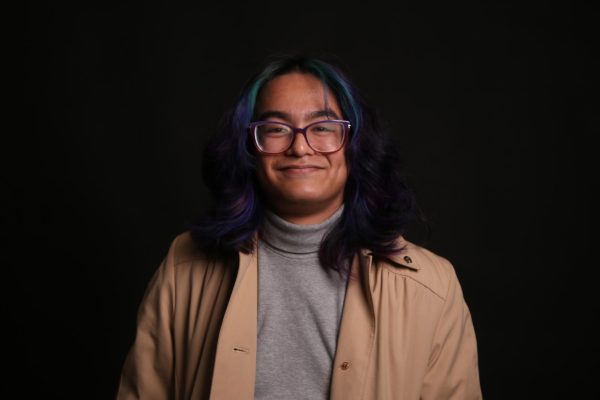There is a willful ignorance to those who have never been invisible. They have been staring us in the eye the entire time, for decades.
How often do our politicians refer to people affected by homelessness as those that should “get a job” or “work harder?” Everyday people simply accept that it is normal for someone to live without their basic needs met.
This dispassion speaks in our vocabulary. We demean fellow humans as “hobos” and “weird.” Public and store bathrooms are off limits to unhoused individuals, yet we act puzzled that they might be living in unhygienic conditions.
A study by the Center for Media and Social Impact (CMSI) in 2018 found that most popular TV programs in the U.S. oversimplified homelessness as being similar for all people, regardless of identities and circumstances.
Juju, an outreach member for the Fresno Homeless Union who chose to identify by first name, said his experience while being unhoused had its difficulties as a result of being Black and queer due to the general lack of services and specific support for those of queer identity.
Many in Juju’s situation entered sex work to survive. These conditions are unsafe especially because of their identity.
Juju had to rely on the protection of drug dealers and gangbangers which led to having to work for them through robbing stores and sex work clients.
“There is a lot of people…on the streets that are LGBTQ+ that you wouldn’t even know, for the simple fact that you can’t show your true colors out here,” he said.
The CMSI study also found that 76% of show narratives attributed the cause of homelessness to perceived personal failures such as substance abuse and mental illness. It found 90% of articles from the most read news outlets failed to correlate homelessness to housing affordability and gentrification.
Antonio Gramsci, a 20th century Italian philosopher, helps to explain these manifestations through his theory of cultural hegemony, the domination of one group over another through cultural means.
Gramsci’s theory says cultural institutions such as media, education and religion are used by the state and the ruling class to instill its ideals on the majority to uphold a system.
Capitalism, the system of profit and growth at whatever cost, is upheld by the wealthy group through this cultural hegemony. We are told that the inequalities of rich and poor are inevitable.
This condemnation of fellow human beings is a feature. Someone who is homeless as a result of the system is villainized and the blame is shifted to the individual.
They must “stop blaming others” for their problems and take responsibility, Fresno City Councilmember Garry Bredefeld said in a council meeting for the city’s anti-camping ordinance.
Stevie Blake, a woman who had been unhoused, felt that this type of rhetoric is narrow-minded.
“I have seen people that have worked in shelters…turn around and become a resident of that same shelter themself,” Blake said.
Blake’s adoptive mother was convinced by an individual with a real estate license to unknowingly sign a power of attorney. She was taken to court, declared incompetent and her family’s house was seized. Blake was forced to live on her own at the age of 12.
Despite having an income for most of her life, illnesses left her unable to work and keep permanent residence. Fresno Police’s Homeless Assistance Response Team (HART), a task force supposed to connect unhoused people to resources and shelters, seized her RV in 2022.
“They basically made me homeless,” she said. “They were basically condemning everybody out there to die.”
She later learned that she was entitled to housing due to her age and disability, but said she was never directed to those resources by HART.
This notion of personal responsibility and choice gaslights us into consenting to the systemic causes of homelessness.
Fresno is the ninth most competitive rental market in the entire country according to an article by Forbes sourcing data from Zillow and the U.S. Census Bureau. Of 2,000 renters surveyed, nearly half of people did so because they could not afford home ownership.
A 2023 University of California, San Francisco study found that most of its 3,200 unhoused participants had left permanent residence due to economic, social and health reasons. Factors out of the individual’s control often play a role in the path to homelessness.
The majority of people in the study paid 30% or more of their income to rent, on top of the risks of losing a job and health complications.
Many reported there was short notice or few legal protections prior to losing residence. Economic conditions such as loss of income as well as increase of rent led to many losing their housing.
Social reasons such as conflict with residents were cited as common causes for leaving residence. These reasons coincided with mental strain created by overcrowded housing conditions and financial stresses.
Eighty-nine percent of participants said housing costs kept them from being able to afford a permanent residence. Many did look for jobs but reported factors such as lack of housing or transportation as interfering with their ability to work.
Fewer than half of participants received formal assistance to secure housing while many did not know of existing services.
Feelings of manufactured fear prevail over the facts of economic conditions and the lack of safety nets that force increasing amounts of people to go without housing.
A house in the United States is not seen as a home. It is a commodity that is tossed around like a game and something to make a profit on. This dogma allows landlords and developers to inflate rent and housing prices.
When talking about the increase of people having to sleep on the streets and “othering” them, it is related to the cultural apparatus of the ruling class.
The status quo is the rich and powerful who would rather turn to fascistic tendencies of criminalizing people rather than answering to their own faults. This cannot go on.








